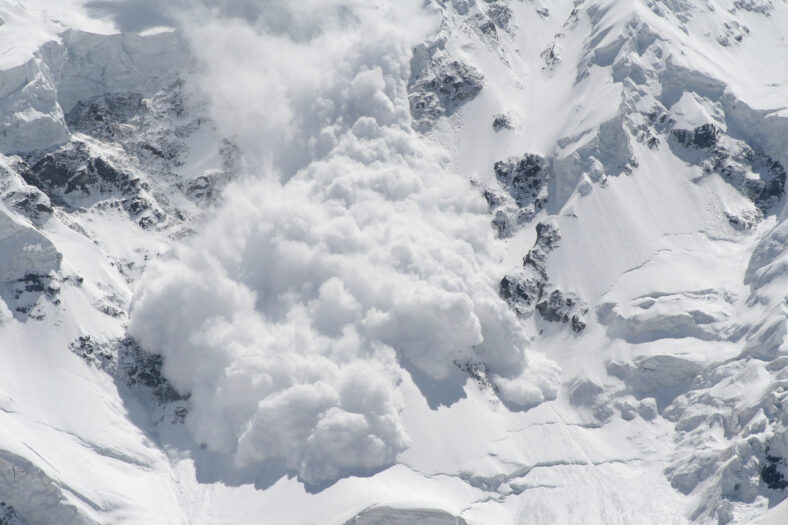She Sadly Found Her Husband Buried In Three Feet Of Snow After An Avalanche Took His Life

This month, a backcountry skier from Colorado tragically died in an avalanche, and it was his wife who discovered him buried under three feet of snow.
On Tuesday, January 7, Don Moden Jr., a former Ouray Mountain Rescue Team (OMRT) member and experienced backcountry tourer, went skiing alone in Colorado, and his wife was “expecting a call at the end of his ski day.”
However, the 57-year-old never got in touch with her, so she contacted the Ouray County Sheriff and took matters into her own hands.
She drove to Red Mountain Number 3, close to Red Mountain Pass, and snowshoed to the slope where her husband had intended to ski. At that point, she saw an avalanche on the slope.
“She initiated a transceiver search and immediately acquired a signal with a reading of 56 meters,” says a report published by the Colorado Avalanche Information Center (CAIC).
Afterward, Don’s wife used her transceiver to pinpoint her husband’s location and started to dig. Don had been buried in three feet of snow, possibly “for more than four hours before help arrived.” He was found dead.
According to the CAIC report, “She yelled for help, and soon, other backcountry skiers in the area arrived, followed by members of Ouray Mountain Rescue Team (OMRT).”
The rescuers helped remove Don from the debris, and OMRT provided medical care as he was transported to the highway. The snow was reportedly too deep to “effect a self-rescue from avalanche debris.”
In a Facebook post shared on January 14, the OMRT said Don was a dedicated team member from 2010 to 2017, adding that his “exceptional backcountry skills, athleticism, and meticulous attention to detail as the team’s Equipment Officer set a standard we continue to honor.”

Sign up for Chip Chick’s newsletter and get stories like this delivered to your inbox.
“Affectionately known as ‘The Don,’ he left an indelible mark on our team, not only through his expertise but also through the camaraderie and friendship he brought to every mission,” the post reads.
“Our hearts are with Don’s family and friends during this difficult time. He will forever remain in our thoughts and in the history of our team.”
The fatal avalanche was approximately 800 feet wide, with the crown face traveling along a wind-drifted subridge of Red Mountain Number 3. The CAIC report stated the crown face was three to four feet high and nearly six feet at its tallest point.
Tracks and equipment indicate that Don had been descending when the avalanche occurred. He’d been wearing an avalanche airbag backpack and an avalanche rescue transceiver, but the backpack, which was functional and armed, reportedly “was not deployed.”
“He had skied on Red Mountain Pass for 16 years and knew the terrain on Red Number 3 well. He chose his terrain as appropriate for the day based on his previous experience of the slop and the snowpack,” the CAIC noted.
The agency cautioned that backcountry skiing is usually safer when done in groups, as there will be more resources to conduct a rescue if something goes awry.
“However, like the decision to travel on a specific route during certain avalanche conditions, solo travel is a personal choice,” the CAIC concluded.
“Between October 1, 2020, and January 7, 2025, solo backcountry travelers accounted for 18% (6 of 33) of avalanche deaths in Colorado. In each of the last five avalanche seasons, at least one solo traveler has died in an avalanche in Colorado.”
More About:Human Interest